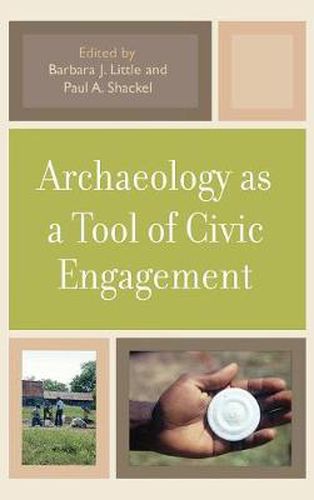Readings Newsletter
Become a Readings Member to make your shopping experience even easier.
Sign in or sign up for free!
You’re not far away from qualifying for FREE standard shipping within Australia
You’ve qualified for FREE standard shipping within Australia
The cart is loading…






Archaeology as a Tool of Civic Engagement is an indispensable resource for archaeologists and the communities in which they work. The authors are intensely committed to developing effective models for participating in the civic renewal movement - through active engagement in community life, in development offor interpretive and educational programming, and for in participation in debates and decisions about preservation and community planning. Using case studies from different regions within the United States, Guatemala, Vietnam, Canada, and Eastern Europe, Little and Shackel challenge archaeologists to create an ethical public archaeology that is concerned not just with the management of cultural resources, but with social justice and civic responsibility. Their new book will be a valuable guide for archaeologists, community planners, historians, and museum professionals.
$9.00 standard shipping within Australia
FREE standard shipping within Australia for orders over $100.00
Express & International shipping calculated at checkout
Archaeology as a Tool of Civic Engagement is an indispensable resource for archaeologists and the communities in which they work. The authors are intensely committed to developing effective models for participating in the civic renewal movement - through active engagement in community life, in development offor interpretive and educational programming, and for in participation in debates and decisions about preservation and community planning. Using case studies from different regions within the United States, Guatemala, Vietnam, Canada, and Eastern Europe, Little and Shackel challenge archaeologists to create an ethical public archaeology that is concerned not just with the management of cultural resources, but with social justice and civic responsibility. Their new book will be a valuable guide for archaeologists, community planners, historians, and museum professionals.